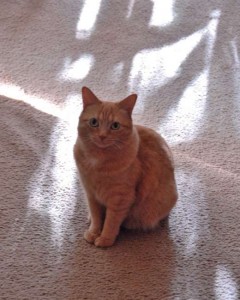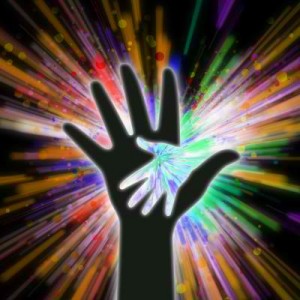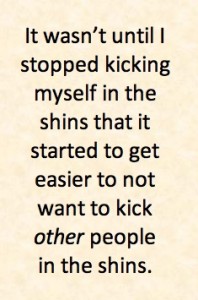After a two-night rest at a relatively quiet hotel/casino in Elko, NV, far from the glitz and glamour of Vegas or Reno but still with all the amenities, we were ready to start driving the last leg of our move from Minneapolis to San Francisco.
We had gotten up, had our coffee, and were showering and preparing for the rest of the trip. Bruce was in the bathroom, and I was in the bedroom watching the news and packing.
I must have gasped or said something, because from the bathroom Bruce said, “What?”
“They’re saying a small plane just flew into the World Trade Center,” I told him.
“That’s not possible,” he said. “They don’t allow airplanes in that airspace.”
“Well, somebody hit one of the towers,” I told him.
We spent the next couple of hours watching in horror as the events of the morning unfolded. I will never forget watching Aaron Brown on CNN holding it together as he reported live throughout the morning. I will never forget sitting on the bench at the foot of the bed, glued to the TV, my packing forgotten.
It was horrible enough by itself, but the uncertainty compounded the horror. We had friends in New York, were they ok? What was happening, were the tallest buildings in every major city under attack? I had friends working in the tallest building in Minneapolis, were they targeted? Would they be ok?
Finally we could watch no more, and we had to hit the road. We had to be in San Francisco to start my new job on a certain day, and it didn’t make sense to stay where we were. Our next stop was to be Reno, and then on to San Francisco. I went to the front desk to check out and asked them to help me make a reservation at a sister-hotel in Reno. I couldn’t get a reservation anywhere, though, because all flights out of Reno were grounded. No one was checking out.
We debated, what should we do? Ultimately we decided to take our chances and drive across Nevada to Reno and hope we would be able to get a room when we arrived.
I will never forget the surreal nature of that day, driving across the Nevada desert with my husband and our cat, listening to Peter Jennings on the radio. That was a fitting sign of how the world had turned upside down – Peter Jennings on the radio. We set out not knowing for sure what was happening, and what shape the world would be in when we got to San Francisco. And I remember thinking at that moment that we were probably in one of the safest places on earth, in the middle of the desert. And there was nowhere on earth I would rather be at that moment than in the middle of the Nevada desert with my little family.
We arrived in Reno and had no trouble getting a room. We went out to a sumptuous dinner at one of the casinos, and it seemed anti-climactic: Everything had changed forever, yet nothing looked different.
We drove on the next day, our last day on the road. I took a picture of the row of newspaper stands in front of our hotel, all filled with headlines and pictures of the horror of the day before.
The next weeks were unlike any we had ever spent. I started my new job, and co-workers who were in the military reserves were called in for briefings about their status. For several weeks they were unsure whether they would be called up for active duty, and we made contingency plans. I was used to living in places where we had Disaster Kits for tornadoes and blizzards, but for the first time we worried about the safety of our water supply. Bruce gave me an American flag lapel pin, which I wore to work – and my coworkers were jealous because those pins were in high demand but short supply.
I will never forget driving around our little suburb in the evening, seeing people standing on street corners waving American flags, and drivers honking in support as they went by.
I will also never forget how my multi-cultural office pulled together – coworkers who had come to the U.S. were so supportive of the United States, and they were appalled that someone would attack the U.S. in this way. The rest of us pulled together to support and protect our colleagues from abroad who might suffer angry backlash against “foreigners,” especially Muslims.
Everywhere we went people were kind to each other. People were gentler with each other. People were curious about each other and were willing to learn about and support those where were different – especially since we knew this wasn’t the case everywhere. People were united by their awareness of the fragility of life and how we depend on one another.
Slowly things calmed down, and we found a “new normal,” one that included new building security, new airport security, alerts, and wars on two fronts. It includes colleagues’ children going off to join the military, and new coworkers coming out of the military.
I will never forget the horror of that day. More than anything, though, I will never forget the sense of community and connectedness that blossomed during that time. But in many ways we forgot the heightened sensitivity of those days and how, for a time, we all felt closer. Many of us regained that sense of We’re All In This Together as a result of the economic challenges we are facing, and I am motivated by hope that we can maintain that sense of community without a disaster to drive it.





 Twitter
Twitter LinkedIn
LinkedIn Facebook
Facebook